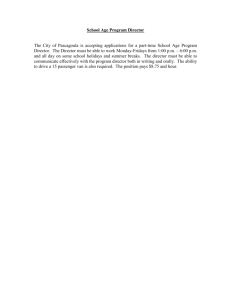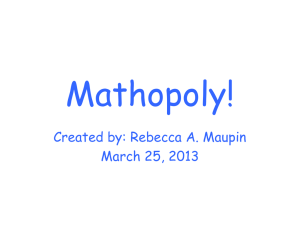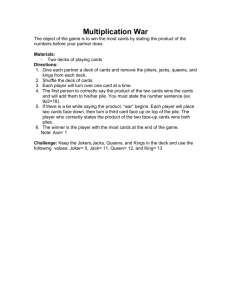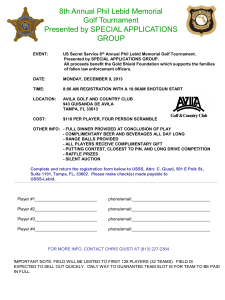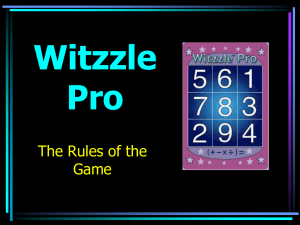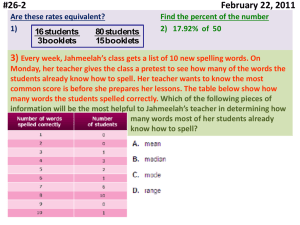Mathematical Expected Value
advertisement
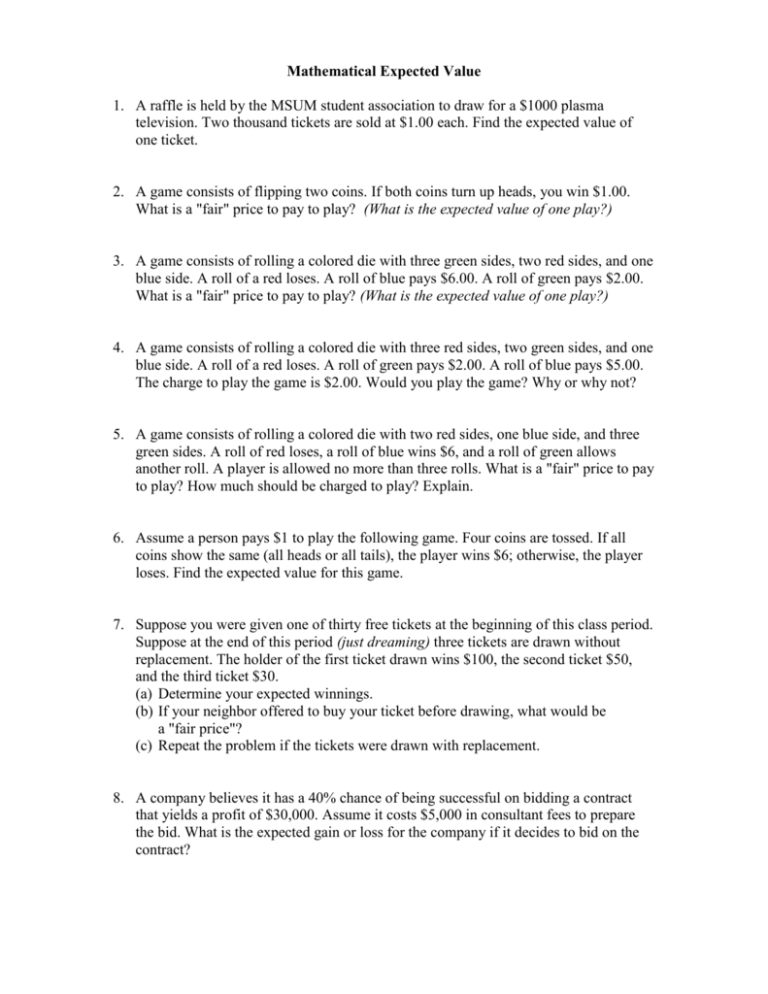
Mathematical Expected Value 1. A raffle is held by the MSUM student association to draw for a $1000 plasma television. Two thousand tickets are sold at $1.00 each. Find the expected value of one ticket. 2. A game consists of flipping two coins. If both coins turn up heads, you win $1.00. What is a "fair" price to pay to play? (What is the expected value of one play?) 3. A game consists of rolling a colored die with three green sides, two red sides, and one blue side. A roll of a red loses. A roll of blue pays $6.00. A roll of green pays $2.00. What is a "fair" price to pay to play? (What is the expected value of one play?) 4. A game consists of rolling a colored die with three red sides, two green sides, and one blue side. A roll of a red loses. A roll of green pays $2.00. A roll of blue pays $5.00. The charge to play the game is $2.00. Would you play the game? Why or why not? 5. A game consists of rolling a colored die with two red sides, one blue side, and three green sides. A roll of red loses, a roll of blue wins $6, and a roll of green allows another roll. A player is allowed no more than three rolls. What is a "fair" price to pay to play? How much should be charged to play? Explain. 6. Assume a person pays $1 to play the following game. Four coins are tossed. If all coins show the same (all heads or all tails), the player wins $6; otherwise, the player loses. Find the expected value for this game. 7. Suppose you were given one of thirty free tickets at the beginning of this class period. Suppose at the end of this period (just dreaming) three tickets are drawn without replacement. The holder of the first ticket drawn wins $100, the second ticket $50, and the third ticket $30. (a) Determine your expected winnings. (b) If your neighbor offered to buy your ticket before drawing, what would be a "fair price"? (c) Repeat the problem if the tickets were drawn with replacement. 8. A company believes it has a 40% chance of being successful on bidding a contract that yields a profit of $30,000. Assume it costs $5,000 in consultant fees to prepare the bid. What is the expected gain or loss for the company if it decides to bid on the contract? 9. A game consists of drawing a single card from a standard 52-card deck. A player receives 40¢ for a heart and 50¢ for an ace (90¢ for the ace of hearts). If the cost of a draw is 15¢, should a person play the game? Explain. 10. A department store wants to sell eight purses that cost the store $40 each and 32 purses that cost the store $10 each. If all purses are wrapped in forty identical boxes and if each customer picks a box randomly, find (a) each customer's expected value if a customer pays $15 for a box. (b) the department store's total expected profit (or loss) during this sale. 11. Assume that the odds against a certain horse winning a race are 5 to 2. If a better wins $14 when the horse wins, how much should the person bet to make the game "fair"? Roulette Roulette in most casinos in the United States has 38 numbered positions: 0, 00, 1, 2, 3, …, 36. For each type of wager compute: (a) the probability of a win (b) the probability of a loss (c) the odds of winning. (d) the odds of losing. (e) the expected value of a $1 bet (f) You go to a casino and play 200 times with $5 bet each time. On average, how much would you expect to win/lose? 1. Straight-Up: The player covers one number. The casino pays 35 to 1. 2. Split: The player covers two numbers. The casino pays 17 to 1. 3. Street: The player covers three numbers. The casino pays 11 to 1. 4. Corner: The player covers four numbers. The casino pays 8 to 1. 5. Five-Number: The player covers five numbers. The casino pays 6 to 1. 6. Line: The player covers six numbers. The casino pays 5 to 1. 7. Column or Dozen: The player covers twelve numbers. The casino pays 2 to 1. 8. Red/Black or Odd/Even or 1-18/19-36: The player covers eighteen numbers. The casino pays 1 to 1.


